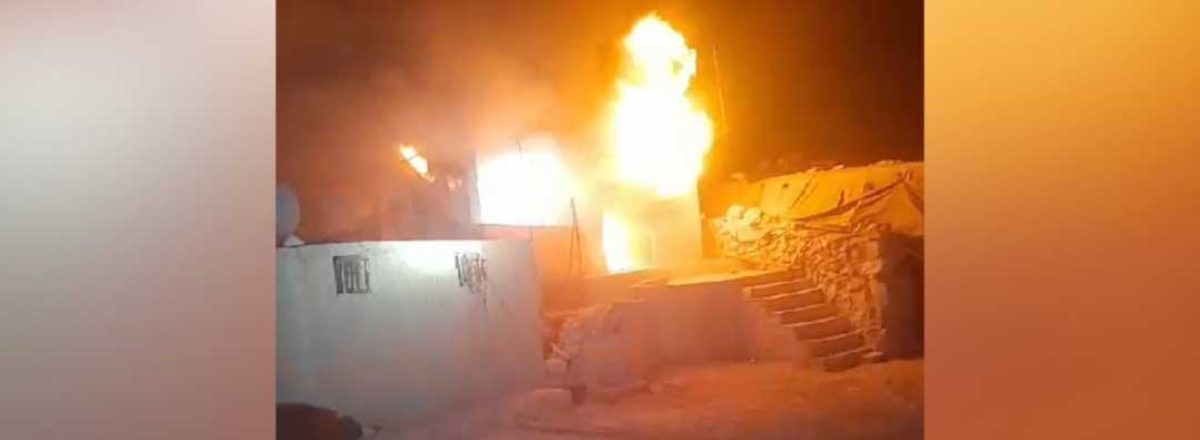
With all eyes understandably on the humanitarian catastrophe in Gaza, the economic and security crisis unfolding in the Israeli-occupied West Bank risks being overlooked, as funds to address the growing needs evaporate, according to aid groups and Palestinian residents. Escalating violence by the Israeli military and settlers, intensified restrictions on mobility, tens of thousands of cancelled work permits, and the withholding of tax revenue from the Palestinian Authority (PA) are combining to tip the territory into a humanitarian crisis, they say.
Since Oct. 7, Israel has stepped up military raids in the West Bank, and violence by Israeli settlers—already on the rise—has increased sharply. At least 291 Palestinians, including 75 children, have been killed, according to the UN’s emergency aid coordination body, OCHA. This represents a massive rise. In all of last year, Israeli forces killed 146 Palestinians in the West Bank (and that was the highest annual number since 2004), according to the Israeli human rights group B’Tselem.
Revoked permits, job losses, and unpaid salaries
After Oct. 7, the Israeli government suspended all permits allowing Palestinians living in the West Bank to work in Israel or in Israeli settlements in the occupied territories.
The International Labor Organization (ILO) estimates that this move eliminated around 208,000 jobs—about 24% of all employment in the West Bank. Israel’s agriculture and construction sectors are dependent on Palestinian and foreign workers who take on low-paid jobs that Israeli citizens refuse.
For tens of thousands of government employees, the situation is equally bleak. Israel collects taxes on Palestinian imports and exports to both the West Bank and Gaza. It transfers the revenue—after taking a 3% commission—to the PA, but frequently uses it to exert pressure on the Palestinian leadership.
A transfer hasn’t been made in more than two months due to disagreements over a portion of the money that goes to pay public employee salaries in Gaza. As a result, the PA has been left without enough funds to pay public employees, although an agreement brokered by the United States on Dec. 17 may see the transfers resume.
— from The New Humanitarian, Dec. 19 (excerpt)
Photo: B’Tselem





Palestinians flee villages as violence surges on West Bank
Over a dozen Palestinian villages in the Israeli-occupied West Bank have been emptied due to settler attacks since the current crisis began on Oct. 7. In one example, the some 250 residents fled the village of Khirbet Zanutah, near Hebron, in late October, taking refuge with families in other villages. The Khirbet Zanutah schoolhouse was subsequently torched and bulldozed, along with most of the rest of the village
Khirbet Zanutah is located in the 60% of the West Bank that is under full Israeli military control, known as Area C. The villagers had gone to court to fight efforts by Israeli authorities to evict them for years, including petitioning Israel’s Supreme Court. The official eviction of the vilage (ostensibly because it is built on a Byzantine archeological site) was pending when settlers took matters into their own hands. The European Union had funded the village school as part of a program protecting Palestinian villages seen as “at risk of forcible displacement.” (ABC, Haaretz, Haaretz, B’Tselem)
Israeli drone strikes on West Bank refugee camp
Israeli forces killed at least five Palestinians in a drone strike on Nur Shams refugee camp near the West Bank town of Tulkarem on Dec. 17. The IDF confirmed its forces used aircraft to target residents in the camp, saying it struck and killed fighters who had hurled explosives at Israeli troops. (Al Jazeera)
Jenin’s Freedom Theatre raided, vandalized
The Freedom Theatre in Jenin, a popular symbol of peace and hope in the occupied West Bank, has been raided, vandalised and painted with Israeli religious and political symbols. The Israeli military raid on the theatre took place on the night of Dec. 12, with its two directors arrested. One of them, Ahmed Tobasi, was released after 14 hours, but the other, Mostafa Sheta, remains in detention. He is believed to have been taken to the Megiddo military prison in northern Israel. Vandals, presumably Israeli settlers, atter spray-painted te theater’s walls with a Star of David and a menorah. (Al Jazeera)
Biden issues executive order targeting violent Israeli settlers
President Joe Biden issued an executive order Feb. 1 enabling sanctions to be issued against violent Israeli settlers in the West Bank. The first round of sanctions under the order targets four individuals implicated in settler violence towards Palestinians. The sanctions include blocking the individuals’ financial assets and barring their entry into the United States.
In December, Secretary of State Antony Blinken announced a policy targeting extremist settlers involved in West Bank violence. The policy aims to deny visas to “individuals believed to have been involved in undermining peace, security, or stability in the West Bank.” (Jurist)